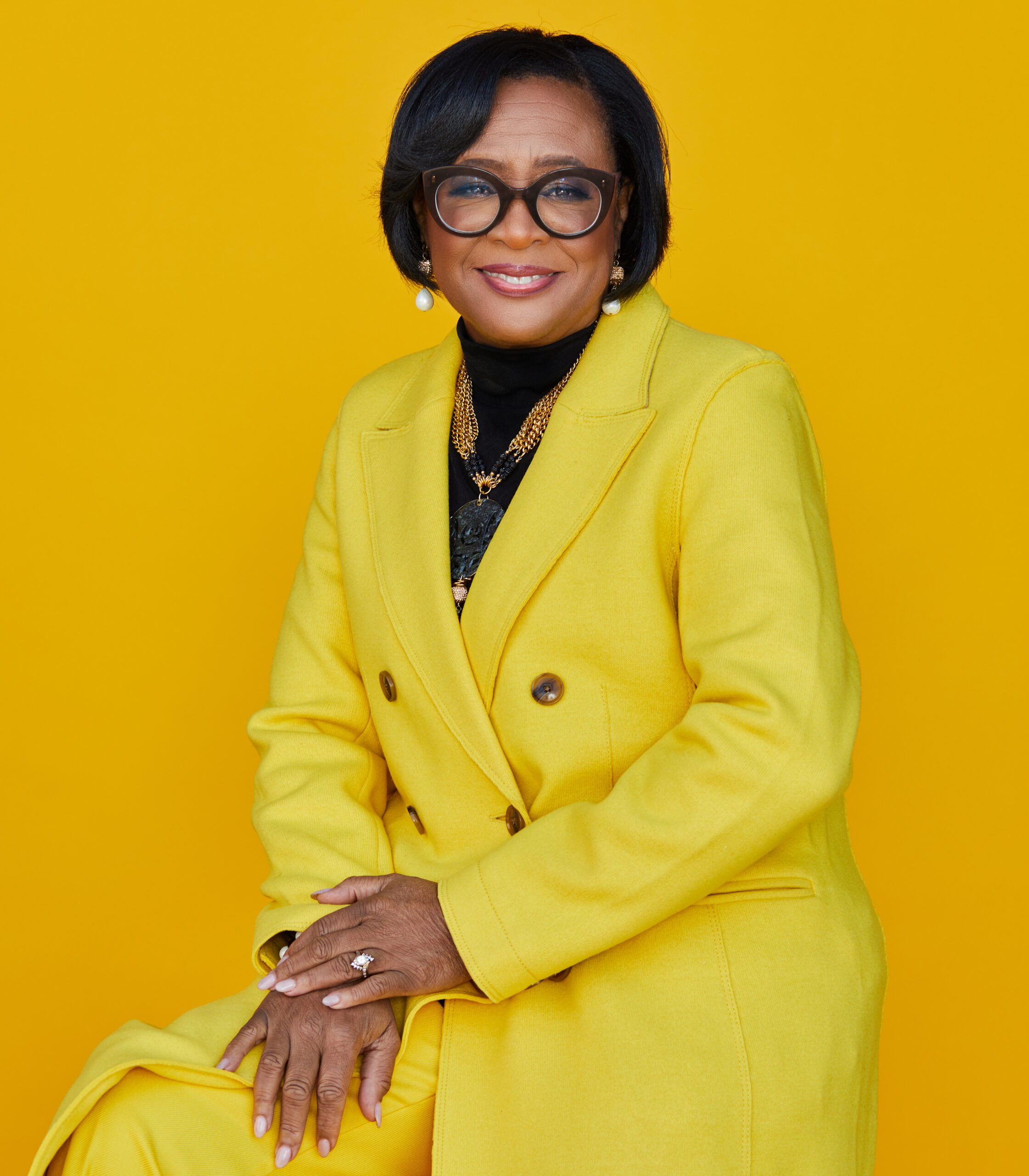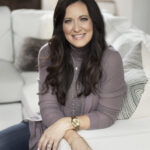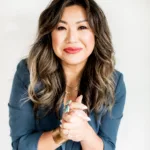
You’ve Been Chosen
In the spring of 2010, not too long after my fiftieth birthday, I sat in a Dallas conference room with my colleagues, AT&T leaders from across the country, filling out the human performance expert Jack Groppel’s Corporate Athlete assessment questionnaire. As the president of AT&T North Carolina, I was required to be there, but I didn’t expect much to come from the session. I was sure I wouldn’t find out anything new about myself. I knew me! I was in excellent emotional, mental, and spiritual health. I read and kept my mind sharp. I spent time with my family and friends to get the emotional support I needed. I was intentional about making time for prayer, going to church, and feeding my soul. As I remember it, my results were off the charts in those categories.
My physical health, though? I thought it would be my lowest score but figured it would still be decent. I used to be an athlete, and now as an executive and a mom, I was constantly on the go.
I’d already cut back on Ding Dongs and fried chicken. What else could they want from me?
I was partially right. Physical health was my lowest scoring area on Jack’s assessment, but the score was far from decent. It was clear where I needed to put my attention.
A few months before, my primary care physician had given me a referral slip for a colonoscopy test, which he called a routine precaution for all his patients when they turned fifty. I’d thanked him and put the slip on my nightstand, figuring I’d get to it sooner or later. After all, I’d be fifty for a whole year. I had plenty of time.
I thought about that slip at the end of Jack’s program, when we were told to all choose accountability buddies from within the group and then share with them one specific action step that we would take for improvement. I turned to Frank, a straight-talking executive from New Jersey, and told him I would get a colonoscopy. I was a busy woman, I reasoned, so I picked something I thought wouldn’t require extra energy.
Over the following weeks and then months, Frank somehow always managed to call me when I was in the Starbucks drive- through. “Did you get that thing done yet?” he’d ask in his gravelly New York accent. I’d tell him no and change the subject.
Seven months and many Frank phone calls later, I finally got to say yes, the appointment was made, and so could we please talk about something else now? I scheduled my colonoscopy for December 14, the day before my fifty-first birthday. I was cutting that “get it done at fifty” close, but in my defense I schedule all of my routine medical checkups for my birthday week every year. I have an annual health plan that I stick to, and now it contained a colonoscopy “maintenance” box to check.
I still remember the anesthesia-induced “sleep” I had that day as the best I’ve ever had. I didn’t feel a thing. When I woke up, though, the first thing I saw was Kenny standing over me. That wasn’t normal. Kenny’s not one to hover too close. Through my anesthesia haze I saw that he was frowning, biting his lip the way he does when he’s bothered. I knew right away something wasn’t right.
“Wife, we’ve got a problem,” he told me, and then he stopped, not sure how to continue. “The doctor saw something he didn’t like.”
I didn’t know how to respond to that, and my brain still wasn’t working at its normal speed. I reached out toward the paper I could see in his hand. “What’s that?”
After a second of hesitation—“Maybe you should read this later when you feel better”—Kenny relented and handed over the report from the gastroenterologist, who’d been called off to see another patient while I was still in recovery. He’d given Kenny copies of the scans they took, promising to call the next day to talk me through them.
I’m no doctor, but when I looked at the pictures of my body, even I could see the nasty-looking mass. It was not the birthday gift I was hoping for.
To be honest, the colonoscopy wasn’t actually my first sign that something was wrong.
I’d been prone to sinus infections ever since I moved to North Carolina four years before, so I was used to swollen lymph nodes. When I felt something swelling in my neck a few months before, I didn’t pay much attention. I just called my doctor for another round of super-duper antibiotics.
When I started inexplicably losing weight, I welcomed it and didn’t ask questions. I complained sometimes to Kenny that I was feeling off and not like myself, but neither of us thought it was anything more than I had too much work, too much travel, and too many sinus infections. When Venessa, my chief of staff, mentioned that I looked tired and pale, I rearranged my travel schedule a little but kept going.
Then, in November, my kids all insisted that we go Black Friday shopping. It wasn’t my favorite holiday tradition, but I agreed. We teamed up with a couple of my friends and their kids, and the crew was all at the mall by 4:00 a.m. As we were getting ready to go, I noticed my back hurt a little, but I wrote it off as the result of being on my feet in the kitchen the whole previous day, making Thanksgiving dinner.
The pain got steadily worse and harder to ignore, until about an hour later, when my son Anthony found me in front of a Ma- cy’s register, collapsed all the way to the floor in excruciating pain, but still holding up my credit card to the salesperson who was ringing up a new coat for my youngest, Alicia.
My conscientious boy was next to me in an instant, simultaneously helping me up and yelling at his sister for not doing some- thing. He threatened to put me in a wheelchair until I agreed to stop shopping and wait in the car until he could round up the rest of the group.
I went to an urgent care clinic that afternoon, but they couldn’t find anything specific wrong with me and sent me home, suggest- ing it was an early stage of diverticulitis. When I was still having trouble standing the next day, Kenny insisted I go to a hospital emergency room. There, a CT scan showed a lesion on my liver, but I left again with no real diagnosis. In fact, the ER doctor specifically told me he didn’t think I had cancer, even though lower left back pain like mine is a symptom of colorectal cancer (as are weight loss, fatigue, and blood in the stool, which I’d also noticed but had dismissed recently).
The pain subsided after a few hours, and I went home and went on with my weekend. The day after my colonoscopy, my actual fifty-first birthday, I went back to the office. I have a tradition that I always work on my birthday, and not just because I don’t want to miss my cake and ice cream at the lunchtime “surprise” party. Growing up poor taught me not to take my career for granted, and whenever I count my blessings, two near the top of the list are a great job and the ability to take care of my family.
Instead of enjoying ice cream with my team, though, I found myself stuck in a conference room, being grilled by auditors making a surprise visit. I’d been the president of AT&T North Carolina for almost four years at that point, and we had become a model program that other AT&T programs across the country followed. But that birthday meeting with the outside interrogators was unusually intense, and the way they asked about some of our business practices sounded more like an inquisition than a normal audit.
As a Black woman in corporate America, I had learned long ago that I would sometimes be treated as if I were unqualified or untrustworthy. It was an unfortunate reality. I sat with no notes in front of me, grateful for my good memory as I honestly answered all their questions and gave them facts.
I had nothing to hide and kept my cool, but after about five hours and one missed birthday party, my aggravation was starting to show. When my assistant stuck her head into the room to tell me that my doctor was on the phone, I gratefully took the opportunity to step out.
It was a case of “out of the frying pan and into the fire,” because the gastroenterologist didn’t have good birthday news for me, either. That out-of-body feeling struck as I stood in my office on my fifty-first birthday and heard for the first time that the nasty thing in the scan was a tumor in my colon and that I needed to talk to a surgeon right away. I don’t think the doctor could use the word “cancer” without an official pathology re- port, but he was insistent that I get this “thing” looked at immediately. At the end of the call, he said again that it didn’t look good.
I thanked him and hung up. After a quick call to Kenny to let him know what had happened, I went back to the inquisition much calmer than I’d been before. The auditors’ questions were still ridiculous, but suddenly insignificant compared with what else I was facing.
To their credit, when I explained to the auditors that the call had come from a doctor, they offered to break for the day so I could make my appointments. I declined; postponing meant they would come back, and I needed to wrap this up so I could focus on what came next. I stayed in the meeting until they ran out of questions, sent them on their way, and then turned to my next task—making an appointment with Dr. Tyner, the surgeon my gastroenterologist recommended.
“Happy birthday to me,” I told Kenny dryly that night when I finally got home. I didn’t know what to think of all this hitting now. Was it a birthday gift or a birthday nightmare? Would I look back on my fifty-first birthday in the years to come and see the start of something tragic, or the start of something great? The jury was still out.
What I did feel right away, though, was that fifty-one was going to be very different than fifty had been.
By the time Kenny and I sat down with Dr. Tyner that Friday afternoon, I’d spent three days looking at pictures of the tumor in- side me. It looked nastier and more annoying every time I saw it. I was sure it was growing centimeters every hour. It needed to go, and it needed to go soon.
Dr. Tyner was pleasant and respectful, and appeared competent. I liked that he’d been practicing for more than twenty years and had experience with this type of tumor. I could see Kenny liked him, too. But things started to go sideways when he asked about our holiday plans. I explained we had originally thought we would go home to see our families in California, but obviously the trip was canceled.
The doctor looked perplexed. In his professional opinion, he said, my tumor was probably not cancerous, and there was no reason to interrupt our holidays. My surgery could wait until January or even February.
Oh, no. That didn’t work for me. My own voice of power started to make itself heard.
I’m not a soft-spoken person like my mother, so when I take on “the voice,” my volume doesn’t change. But I lean in. I make eye contact. I let the person who’s listening know what I know and how we’re going to proceed.
I hadn’t been born with a voice of power. It had taken a long time, and a lot of trial and error, to know how to trust my instincts and use my own voice to speak with both respect and advocacy, regardless of a person’s title or outward presentation. I’d hesitated often when I was younger. Should I speak up? Should I sit back?
On that Friday afternoon, fifty-one years into my journey, I didn’t hesitate. I leaned in and told Dr. Tyner that thirty years of leading teams all up and down the corporate ladder had taught me the only way to get things done is to act, and to act fast. I ex- plained that I’d learned way back in Sunday school that my body was a temple and it was my job to take care of that temple. I had a nasty tumor inside me, and I wasn’t willing to just leave it there, dirtying up the temple. I was willing to wait over the weekend, but this thing was going to come out of me no later than Monday.
Dr. Tyner was very polite. He agreed that the tumor was nasty, but told us he’d seen nastier. He repeated that this wasn’t some- thing for me to worry about. And besides, his schedule was fully booked for the next two weeks, and so were all of the hospital operating rooms in the city. Lots of people have elective surgeries right before the end of the year, I learned, and my tumor was going to have to compete for space with facelifts and tummy tucks.
None of that mattered. I was polite, too, but I explained that I wasn’t leaving until we found a hospital that could handle this nasty tumor on Monday morning. We sat, smiling at each other and in a stalemate as the clock ticked. At one point, Dr. Tyner gave us a tour of his facility. I complimented his great medical library. Then I went back and sat in his office again. I had plans for that night—a birthday celebration with family and close friends— but I explained to the men in the room that plans can change.
Dr. Tyner studied me for a minute and then asked Kenny how long I was going to sit there.
“Get ready for a long night,” my husband said. “She’s not leaving until a surgery is scheduled for Monday.” The doctor jokingly told Kenny he had a pretty good idea what my husband lives with daily. Kenny was too nice to explain that this was nothing.
I smiled at them both, prayed, and waited for good news. The doctor, reluctantly, told his staff to try to find an available operating room. They made several calls, to no avail. I kept sitting and silently praying.
An hour and a half later, a staff member came in to report that an operating room had opened up, and my surgery was scheduled for Monday, 6:00 a.m. It was even at WakeMed Cary Hospital, the hospital closest to our home.
My prayer became a prayer of thanksgiving.
Cynt Marshall is the CEO of the Dallas Mavericks, president and CEO of Marshalling Resources consulting, and the former SVP of human resources and chief diversity officer for AT&T. She is the first African American woman to hold the CEO role for any NBA team and was named one of the “30 Most Powerful Women in Sports” by Adweek, one of the “50 Most Powerful Women in Corporate America” by Black Enterprise magazine, and one of “15 of the World’s Most Inspiring Leaders” by Forbes. She is also an outspoken cancer survivor and regular speaker at cancer-related events. The fourth of six children, Marshall grew up in Richmond, California, and lives in the Dallas area. She and her husband, Kenneth, have four adult children.














